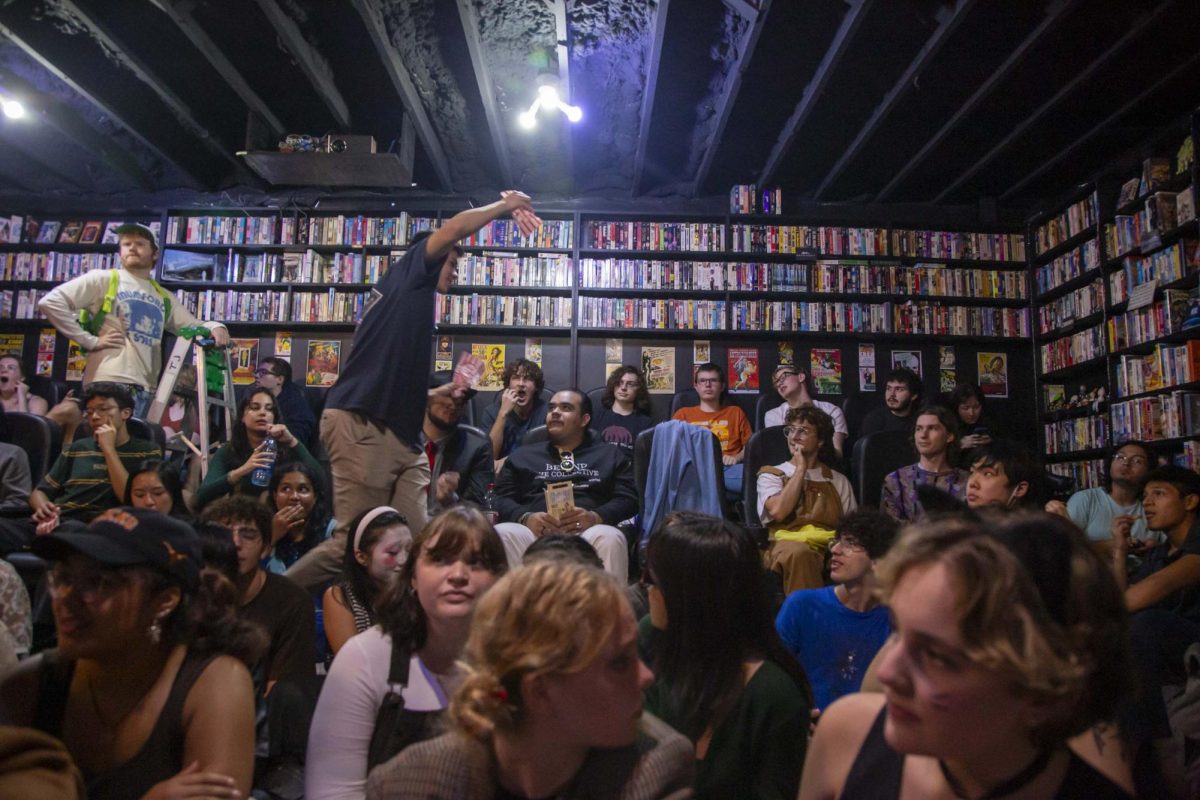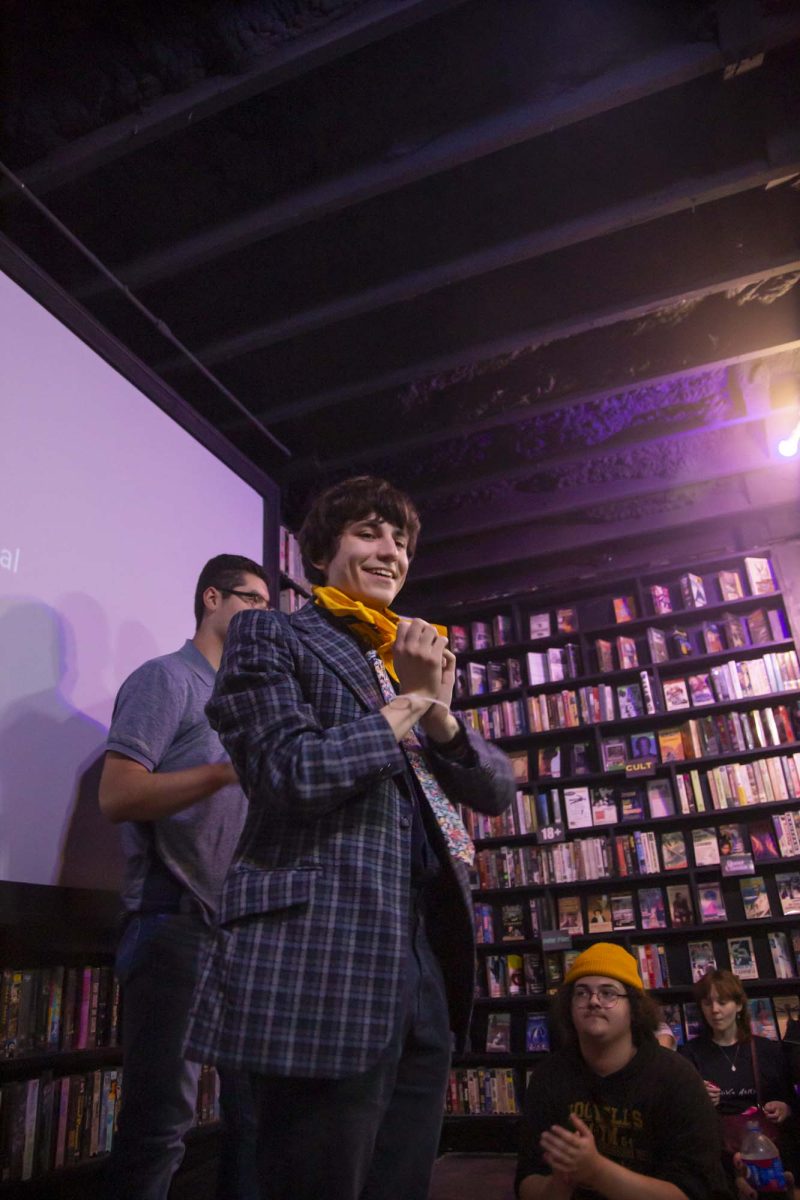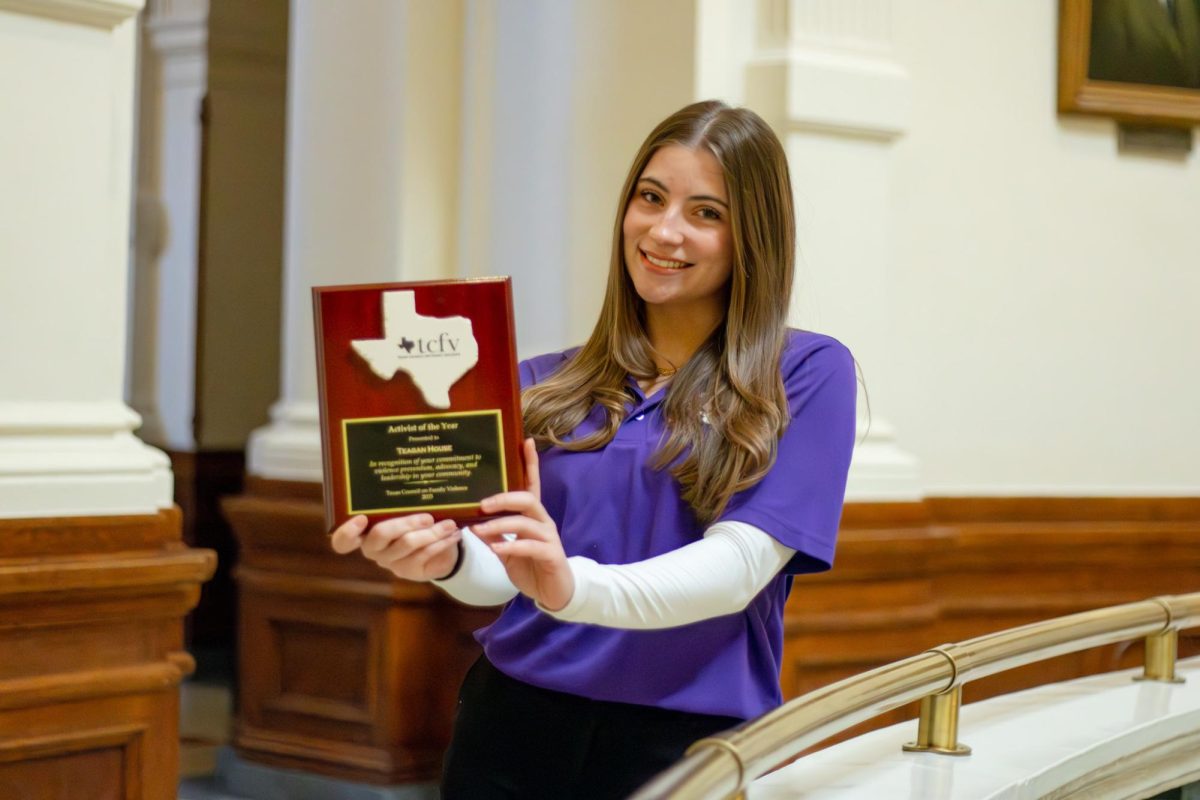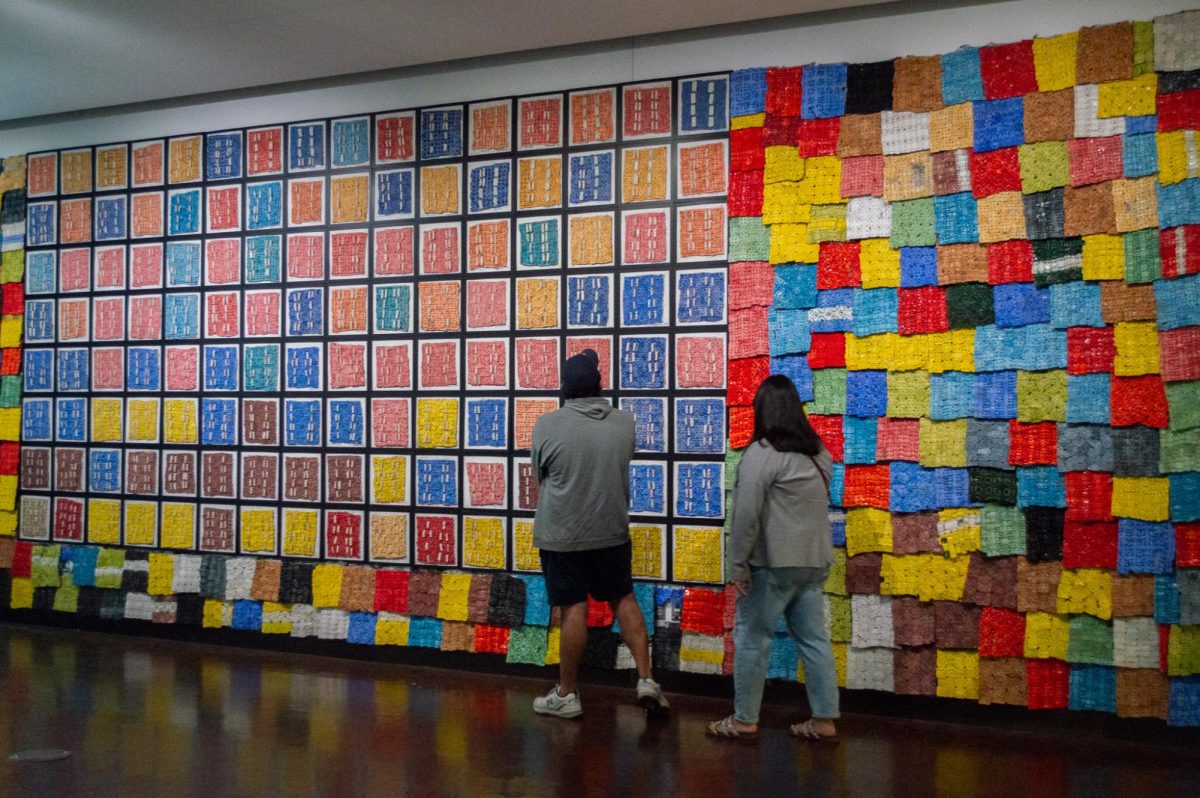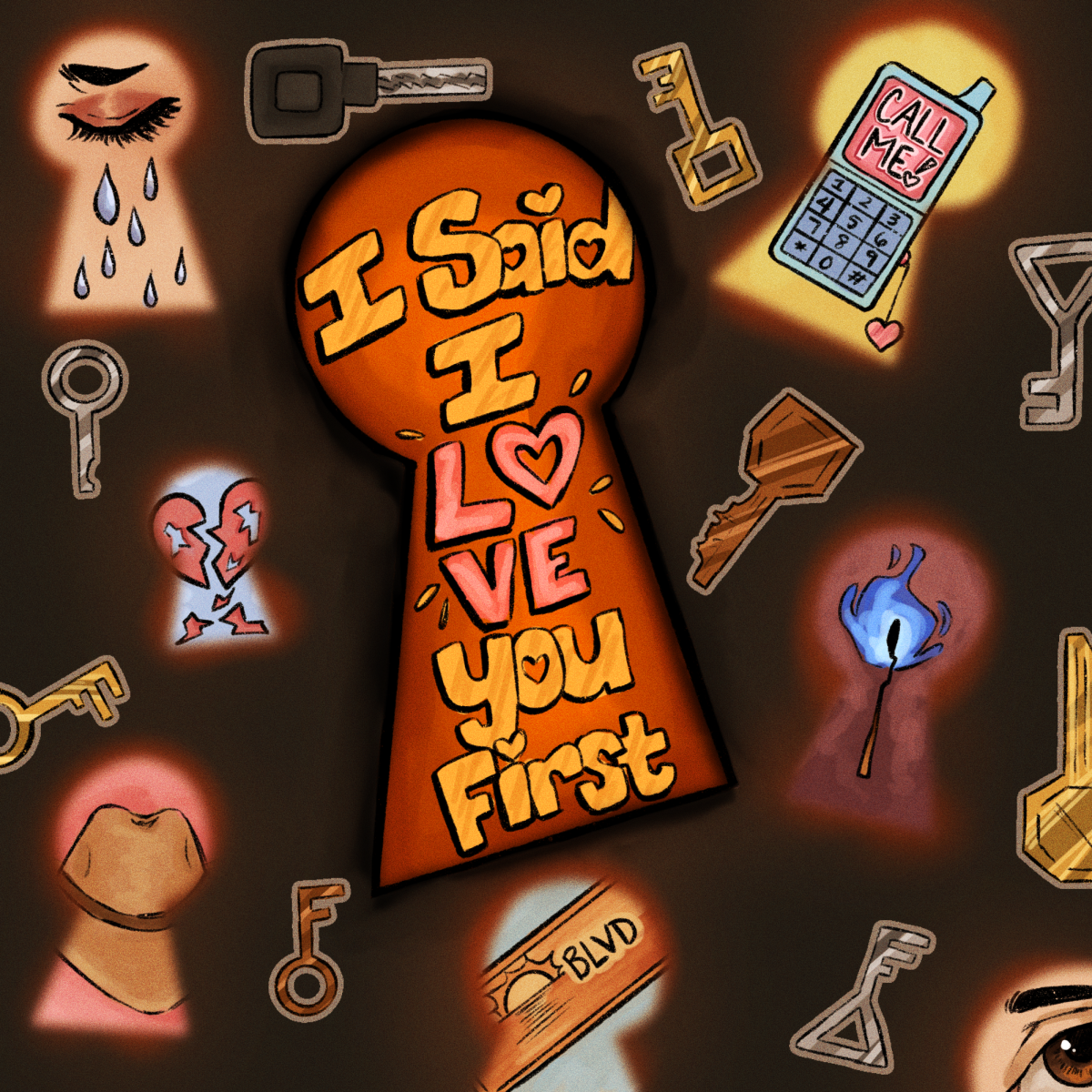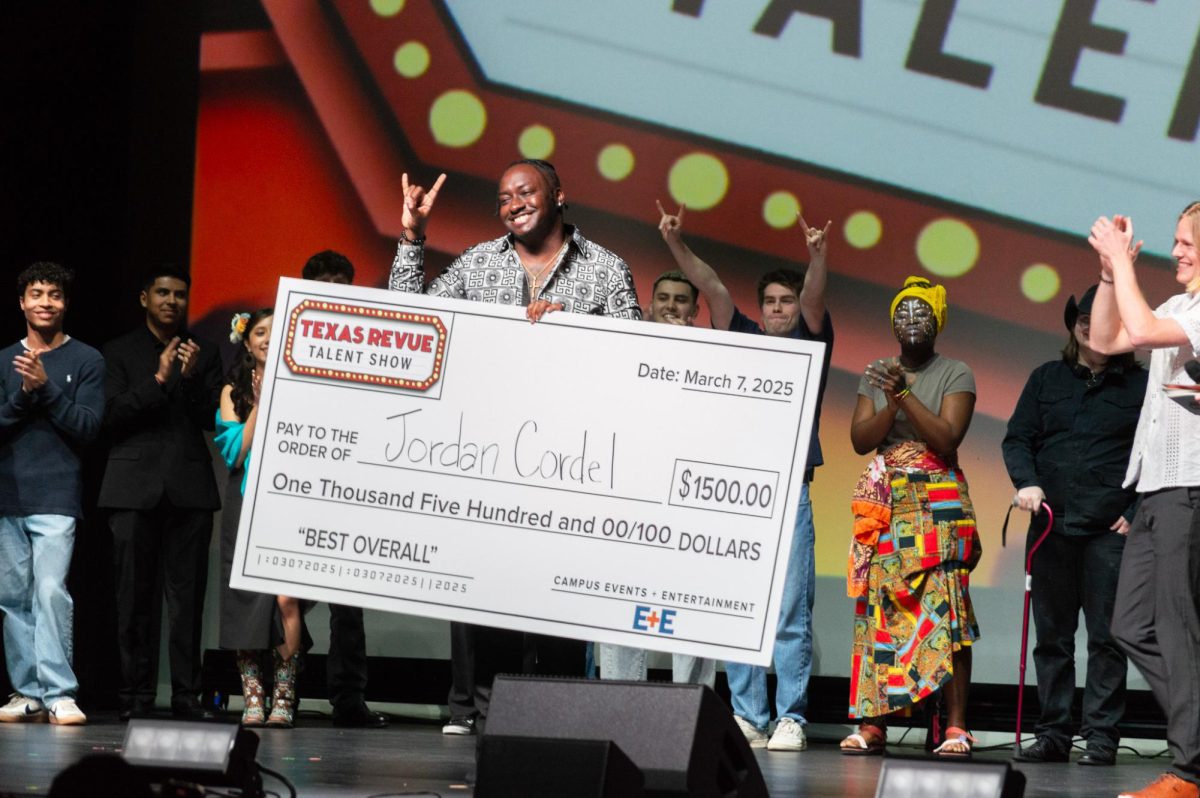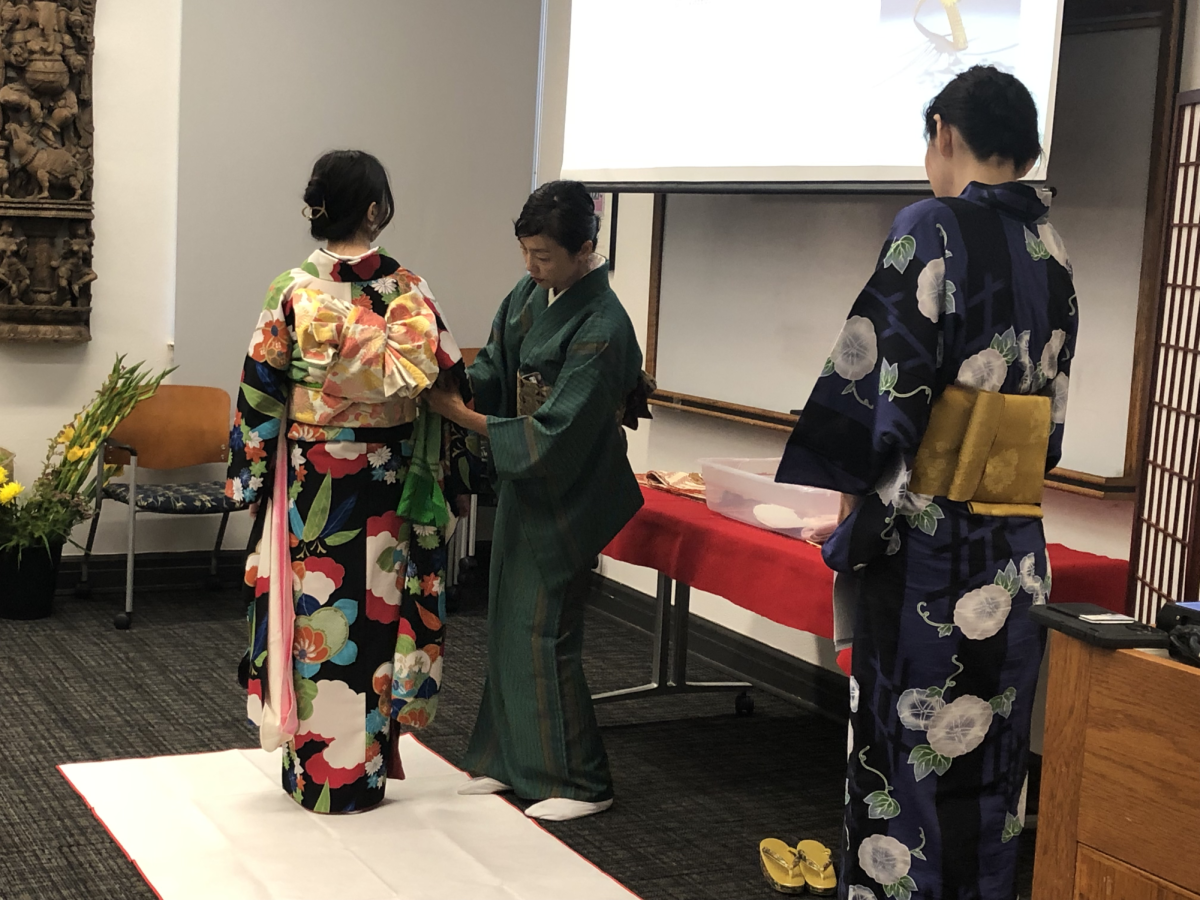Chatter and rustling of popcorn bags cease as a voice calls out “Where is Baxter Bones?” Curiosity falls over attendants until someone finally enters the We Luv Video theater, carrying a zip-tied body clothed in an oversized suit. All of a sudden, Ryan Cerna, a radio-television-film and journalism senior performing as the host Baxter Bones, jumps down and welcomes the audience to The Hourglass’ student film showcase.
The Hourglass, a Texas Student Television program featuring student-made films with an element of unreality, showcased six films at the screening of their fifth episode on Oct. 23. Cerna, the executive producer, acts as Baxter Bones at every showcase, mimicking classic horror programs where an eccentric host guides viewers through a movie marathon.
“The idea was that I was gonna have funny antics as the host to segue the different films together,” Cerna said. “(We wanted to) have an identity behind our show.”
Alongside the zany host, the short timeline for making the films stands out. After filmmakers pitch their ideas and the producers select seven pitches, those selected have one month to create their film.
“It’s a challenge and an exercise,” Cerna said. “Having to improvise and adapt to certain circumstances when making a film — that’s not easy. There’s so much that you can’t account for.”
After accepting pitches from a range of majors, each producer gets assigned one of the seven films, helping obtain a cast and crew and offering support when necessary.
“We’re overseeing that it’s on a timeline, but we’re not intervening,” Cerna said. “It’s their screenplay, it’s their film, but we’re just there to troubleshoot any issues.”
Radio-television-film sophomore Thang Tran’s pitch “A Date to Remember” made it as one of the seven pitches this round. With this being Tran’s first film, he said he felt supported by The Hourglass.
“If you don’t have access to expensive equipment or training, you don’t know how long until you see (your) idea come to reality,” Tran said. “But through The Hourglass I was fortunate to work with a crew that was full of people willing to collaborate.”
The Hourglass supports cast and crew members as well, visible in the experience of radio-television-film freshman Vivian Phan, who acted for the first time in Chelsea Li’s short “Dial Tone Angel.”
“I hope (acting) is the way I experienced it the first time, all the time,” Phan said. “Chelsea’s vision was clear and the director of photography made me feel comfortable (in front of) the camera.”
Once the films wrap up, members and their supporters gather at the showcases to see the work on the big screen. Tran said he felt accomplished and astonished by the end product.
“Seeing my own idea out there was an out-of-body experience for me,” Tran said. “When everybody clapped at the end, I was like ‘Oh wow, I feel like I actually did something.’”
As Cerna prepares to introduce a new set of films following the organization’s next pitch meeting, he said he reflects on the growth and the future of the organization at UT.
“Hopefully, it’s something that student filmmakers and students who don’t have a background in filmmaking want to try,” Cerna said. “To work on a collaborative, creative project can (be) seen as an outlet to come through with their own (creative) visions.”

